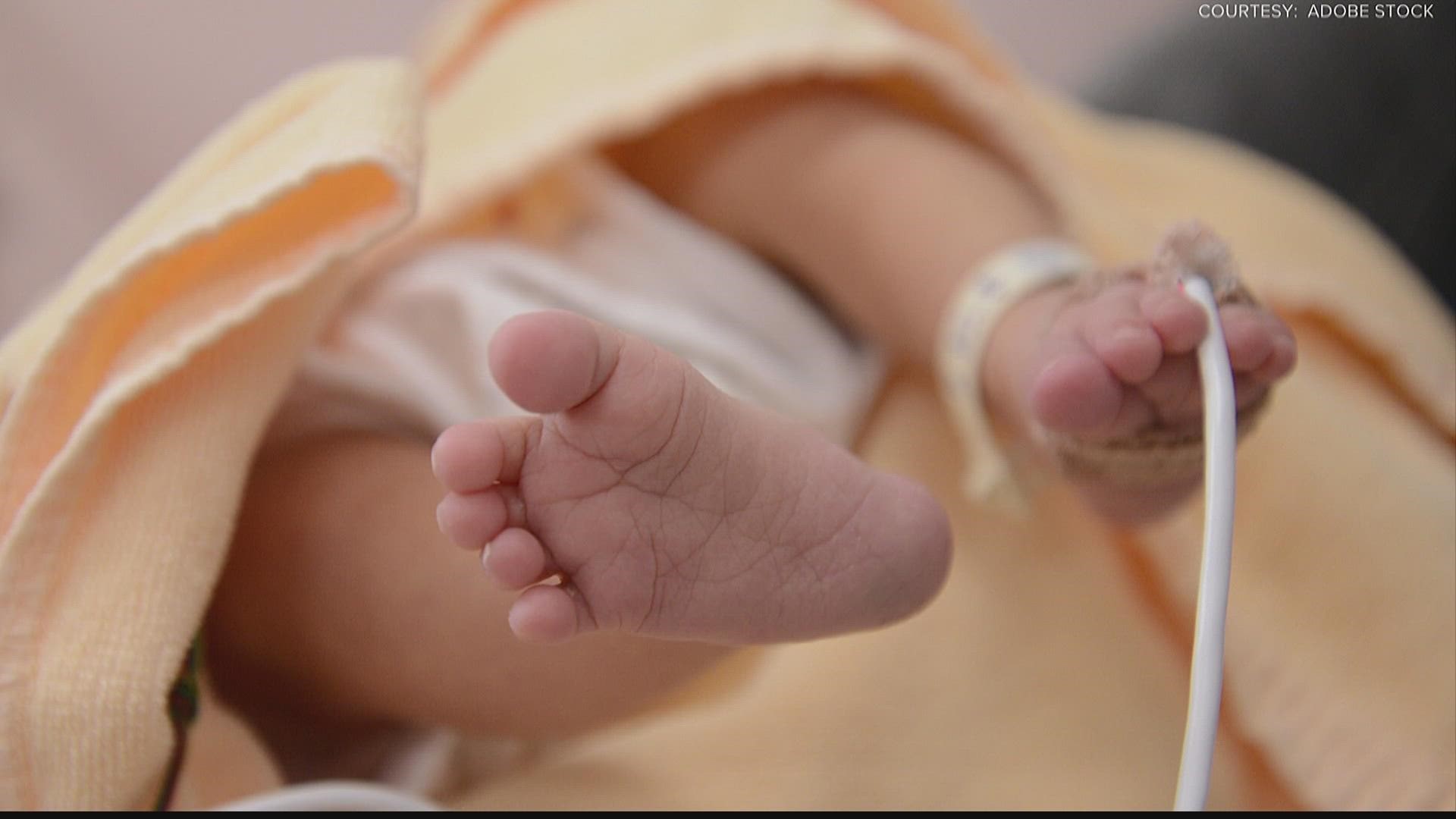Agencies across Georgia are struggling to figure out how to implement the abortion ban that became law in the state this week - particularly the personhood aspect that extends rights to fetuses in utero.
Legal experts and healthcare educators say they're trying to figure out what it means in theory. But 11Alive's Kaitlyn Ross found this is more than theoretical for thousands of Georgia families having to make hard decisions right now.
For Lanise Shortell, it's deeply personal.
She heads up the pediatric hospice program for Harbor Grace and talks to families every day who have been told the babies they are carrying will not survive long after birth - if they make it at all.
"It is incredibly common, much more so than people think. It's just not something that we talk about. A lot of these conversations happen behind closed doors," she said.
Shortell walks with families in grief after they're given the devastating news of severe, profound, or life-limiting diagnoses for their babies.
She meets with families at their home or the hospital.
"This is how it may unfold, this is how it might look in your family. And we arm them with choices. I think what is critical here is that they have the choice," she said.
Many families she works with choose to carry the baby to term - many also choose to terminate.
But she said none of them are told about life-limiting genetic conditions until 10-14 weeks of pregnancy. That's long after the state's 6-week ban on termination.
"The children that do survive through birth, and they have incredible medical complexities that are expensive and they have needs that are expensive, hundreds of thousands of dollars. And the Medicaid expansion that's been put before our elected officials has been denied. So to me, to my team, to the families we serve, it doesn't really make sense. So how are we supporting these families? Who is advocating for these families that are unseen?" she said.
Medicaid expansion has taken center stage in Georgia with families of children with severe and profoundly disabilities telling legislators they need help.
But Shortell said many families who choose to terminate pregnancies that would need financial support from the state don't want to come forward.
"They're afraid of talking about it with the community because this topic is so polarized. But it's real, and it happens, and the impact of it unfolding is quite alarming,' she said.
Shortell said she is not pro abortion - she is pro giving families a choice.
"It is time to welcome in the grey area to this topic. Because people are so polarized on it, angrily, so, it's all black, it's all white, but there are so many families in need that are in crisis and they're in the grey, and they need representation. And they're afraid to bring their concerns to the table. And how are we advocating for them because they're Americans, too. They're Americans, too," she said.
She said she doesn't know how this will play out in practice yet.
There is an exception for risk to the life of the mother in Georgia's abortion law - but life-limiting disabilities are not expressly outlined.
Shortell said the doctors she works with are still figuring that out as well.

